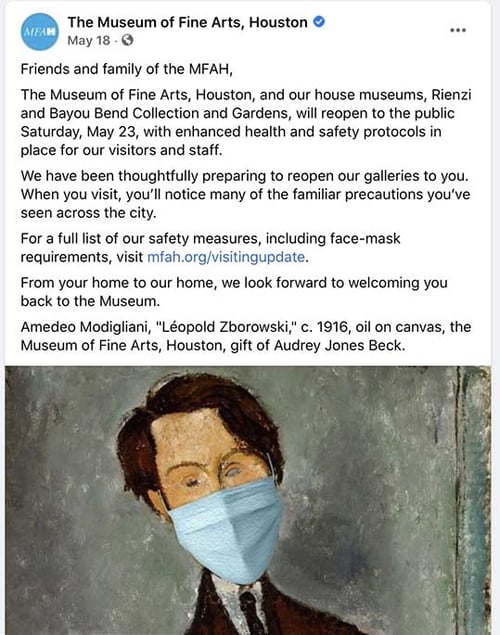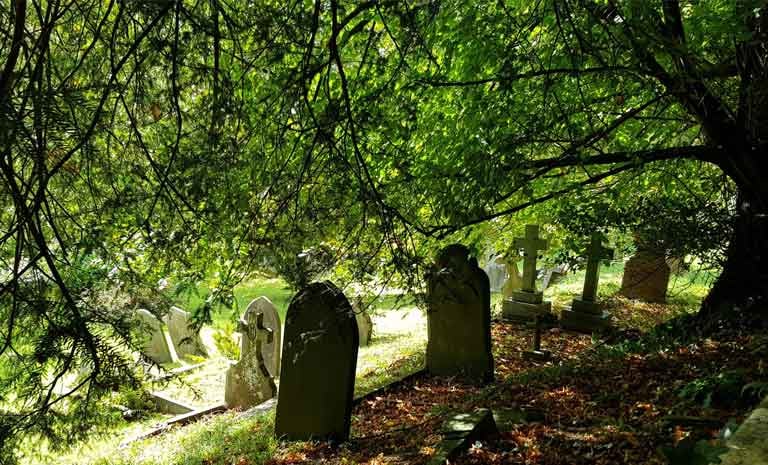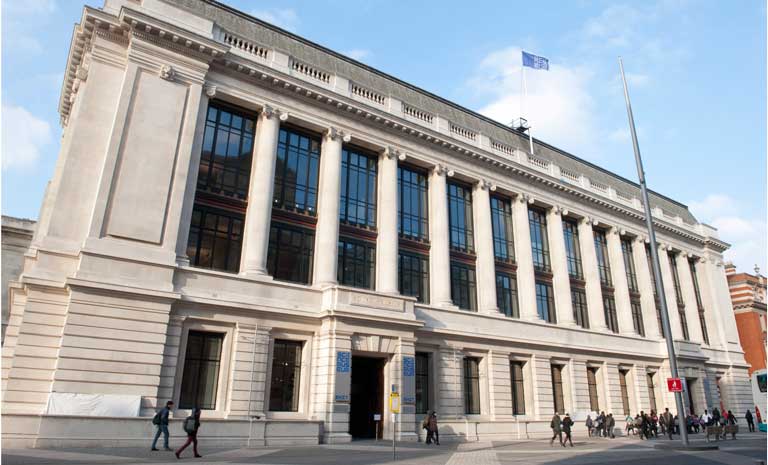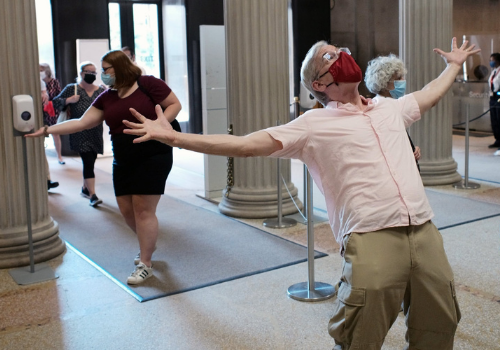Arts and Culture
Article
The Culturephiles
af1fed4f-5ec3-46de-9abd-13ff0994dbe6
6 min
https://edge.sitecorecloud.io/tessiturane75c3-tessituraneee12-development-6640/media/Images/Discover-Images/Andrew-Blog/Post-Traumatic-Growth/Dancer_Unsplash-768x465.png?h=465&iar=0&w=768
A study on trauma resilience points to opportunity on the other side of COVID. Are arts and culture ready to play a part?
Post-traumatic growth is real.

President & CEO, Tessitura
Post-traumatic growth is real.
9/30/2020
6 min
A study on trauma resilience points to opportunity on the other side of COVID
Since the start of the pandemic, Tessitura has talked with thousands of cultural professionals about their challenges and successes. We have synthesized our learnings into Six Traits of Forward-Looking Cultural Organizations. This post is about Trait 2: Strengthen Relationships.

I once read a study suggesting that when the stock market is falling, people inherently believe it will keep falling. The same study showed that when the stock market is rising, the natural inclination is to believe it will continue going up forever. (Neither is true.)
Are you going to put your life savings into stocks while the markets are in a freefall? I know I wouldn’t. And yet history proves that investing in a bear market can lead to remarkable returns in the long-term. We balk at all sorts of rational actions for emotional reasons. In the end, we humans can’t help being governed by our hearts.
The same concept holds for this pandemic: we read about how COVID will leave indelible scars on the arts and culture business. We doom-scroll this narrative daily. And for those of us looking around at our industry in tatters, it’s hard not to accept all the doom as truth.
This is the moment to deepen your relationships, not ghost them.
And yet, we need to willfully put mind over heart! Just as we might believe the stock market is going to fall to zero, we may also believe that the business of arts and culture is going to flatline forever. The horrors of the pandemic will no doubt change us as an industry, but can we really believe that things will be worse on the other side?
Absolutely not.
Hunker down now. Do what it takes to survive now. Make tough decisions now. Spend the day in a couch-pillow fort in your living room if you must — no judgment!
Just don’t give up.
And if nothing else, keep in touch with your once-and-future-audiences. This is the moment to deepen your relationships, not ghost them. This is the moment to prepare for a future where arts and culture is more important, more relevant and more central to human society than ever before. Don’t just take my word for it. Listen to science.
Arts and culture needs to prepare for post-traumatic growth
As detailed in this Atlantic article, the lesser known cousin of PTS (Post-Traumatic Stress) is PTG (Post-Traumatic Growth). While it doesn’t get much press, PTG is actually more common than PTS, according to a study by the Resilience Lab at USC. The article goes on to note that “more than half of trauma survivors said they felt stronger after their experience and had gained a new appreciation for life.”
“Traumatic events are often a personal wake-up call. We will likely emerge from the pandemic craving richer, deeper lives, not more screen time or seclusion.”
Thalida Arpawong
Thalida Arpawong, a faculty member in the Resilience Lab at USC’s Keck School of Medicine, goes even further and provides an unexpected ray of sunshine for our industry: “Traumatic events are often a personal wake-up call. We will likely emerge from the pandemic craving richer, deeper lives, not more screen time or seclusion.”
That last bit bears repeating: “Craving richer, deeper lives, not more screen time or seclusion.”
If that isn’t a clarion call for arts and culture in the midst of COVID, I don’t know what is. On the other side of the pandemic, people are going to eschew screens because they crave human connection and experiences. Start your engines. Keep in touch with your community and deepen your relationships with them now. Fortune favors the prepared.
And don’t take science’s word for it. Listen to your peers.
A glimpse at audiences already returning to culture

The Museum of Fine Arts Houston was the first major American art museum to reopen after COVID lockdowns, in May 2020. I was lucky enough to speak with Museum Director Gary Tinterow a few weeks after their opening. While most of the press had focused on their operational safety measures, I was far more interested in the reaction of the attendees themselves.
“How did people act the first time they walked back into the Museum?” I asked.
“They wept,” Gary told me. “People were holding hands and crying. It was a very emotional experience.” Keep in mind this is how visitors reacted after eight weeks away from the museum.
Imagine the reaction of a visitor who has missed their favorite museum for five months. Actually, you don’t have to imagine it. Here’s a photo the Met Museum posted on Instagram the day they reopened after being closed for five months:
Whether they’re connecting with tried and true audiences, or new audiences coursing with post-traumatic growth, arts and culture organizations need to foster and prepare for an experience surge on the other side of COVID.
Arts and culture organizations need to prepare for an experience surge on the other side of COVID.
How does one prepare for an experience surge? How does one harness a post-traumatic growth world? It is actually pretty simple. As this post describes, stay connected to your whole community — not just your existing audience. As this post suggests, harness the emotional connection of hometown pride to prime the pump for what you have to offer. And most of all, strengthen all of those relationships right now, so you can play a meaningful part in your community’s post-traumatic growth.
Come on out of that couch-pillow fort and start building for tomorrow.
• • •
If you would like to learn more about the Six Traits and evaluate how your own organization is demonstrating them, download our strategy guide.
Top photo by Aditya Ali on Unsplash
Topics
Arts & Culture

How to be a good ancestor | Andrew Recinos
Arts & Culture
How a conversation with a genealogist changed how I talk with my family

Superpowers of Observation | Andrew Recinos
Arts & Culture / Museums
How a clever museum exec looked up from the numbers and saw the story of the solution.

